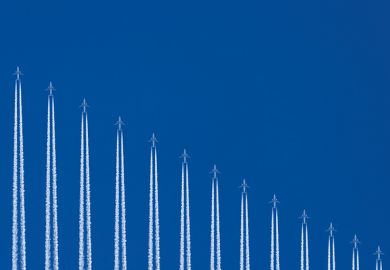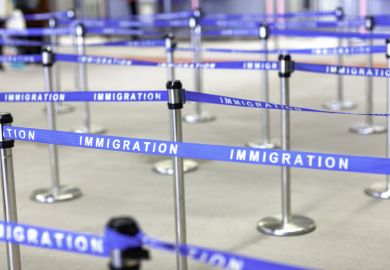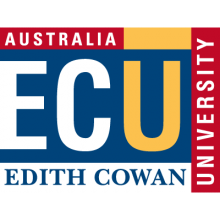Australia risks a “fragmented reopening” to international students, as states and territories impose different rules and requirements for up to two years.
Taliessin Reaburn, international education and tourism director with South Australia’s Department for Trade and Investment, warned that the different Covid infection rates and health challenges across the nation would foster an uneven policy environment that could affect overseas learners.
“Until we have a very consistent vaccination rate across the country, I expect we will still see differences across states and territories,” he told the Australian International Education Conference.
StudyPerth chief executive Phil Payne said a fragmented approach would benefit nobody. “Without further coordination and intervention from the federal government, and without more cooperation from the states and territories, things are inevitably going to be a bit of a mess. But I’m confident that the collegiate approach taken so far by states and territories will prevail,” he added.
States are taking different approaches to students’ return, with many at rudimentary stages. New South Wales plans to jet in 250 students a fortnight in a pilot programme commencing in December, while the Northern Territory accepted a planeload of 63 students last November.
But the territory’s international student arrivals working group is still planning the next flight. “We will be working with providers to finalise source countries and dates in the coming days,” said StudyNT director Larnie Batten. “We’re really close hopefully to having a bit more of an update for students.”
Victoria has signed off on a proposal to jet in 120 students a week by Christmas. But the plan still requires federal government approval and has attracted criticism over quarantine costs of at least A$5,000 (£2,666) per student.
And while Tasmania’s isolation has helped keep it relatively Covid-free, it also poses logistical “challenges” such as requirements for incoming passengers to quarantine twice. “We’re really excited to see our students come back,” said Harpreet Gill, global education manager with Study Tasmania. “Work is currently under way investigating options around this.”
Queensland plans to quarantine students in a purpose-built facility at Toowoomba, 120 kilometres west of Brisbane. “Our Department of State Development is leading that programme,” said Shannon Willoughby, executive director of Trade and Investment Queensland. “We anticipate early next year.”
In Western Australia, a proposal for the “safe return” of students received provisional approval from the state’s chief health officer last November but “has been undergoing constant revisions”, said Mr Payne.
“Given the Western Australian government’s very cautious approach to border control, our motto has been ‘be prepared but be patient’,” he said. The government has now announced a dedicated quarantine facility in Perth’s eastern suburbs and the formation of a working group. “We aim to be ready to go as soon as conditions permit.”
South Australia first proposed to fly in students more than a year ago, but the plan has been repeatedly shelved because of coronavirus outbreaks. “It was approved by the commonwealth, but the conditions under which we operate changed significantly such that it was no longer able to be implemented,” Mr Reaburn said.
The conference heard that the obstacles had fostered institutional camaraderie. “Dealing with a group of universities and trying to get alignment and common cause, quite often you’re on a hiding to nothing,” Mr Payne said. “However, in this matter…it’s been a very rewarding experience.”
Panellists warned that states may need to prepare for a sudden “influx” of international students, with recent developments suggesting that restrictions could be eased unexpectedly quickly. “Rather than looking at small pilots or gradual reintroduction, things might be moving along quite speedily,” said Edith Cowan University deputy vice-chancellor Simon Ridings.
Study NSW director Toshi Kawaguchi said he was “open to that possibility. It’s front of mind for all of us as we progress our various plans.”
Register to continue
Why register?
- Registration is free and only takes a moment
- Once registered, you can read 3 articles a month
- Sign up for our newsletter
Subscribe
Or subscribe for unlimited access to:
- Unlimited access to news, views, insights & reviews
- Digital editions
- Digital access to THE’s university and college rankings analysis
Already registered or a current subscriber?










